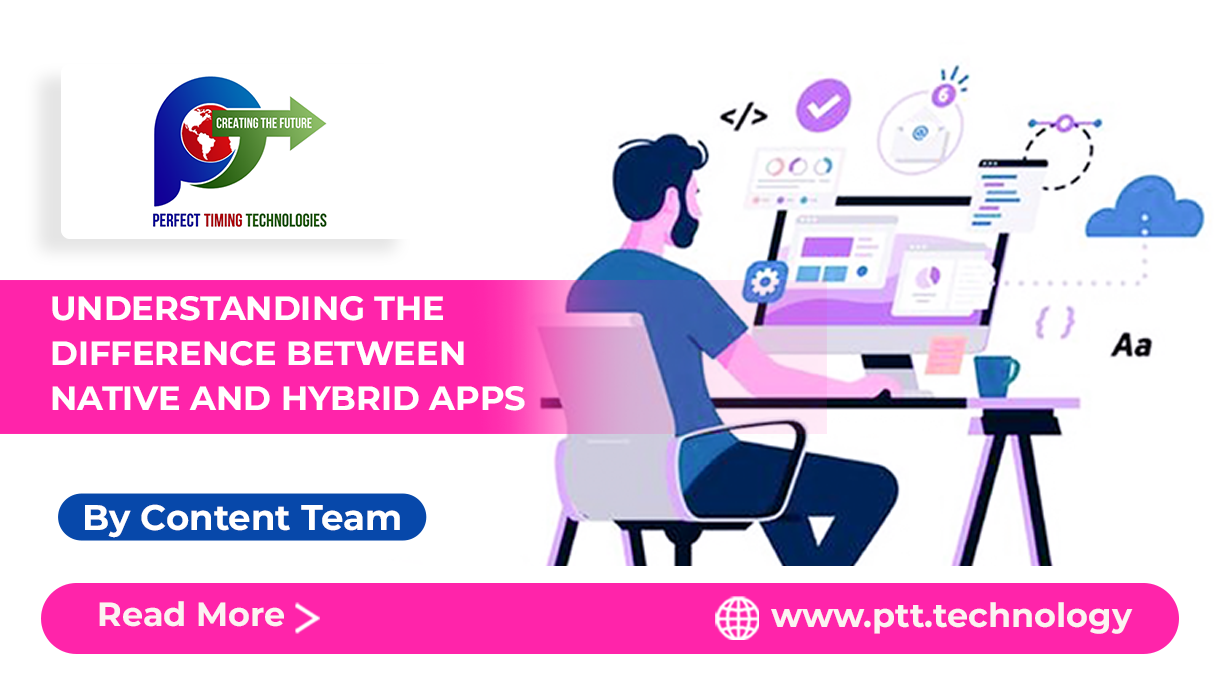
How do tech companies and software developers decide which mobile application development is the best?
Mobile app development is a must-have for modern tech companies. Often companies choose native apps as a choice. But hybrid apps have also become equally good. It is difficult to figure out the difference between native and hybrid apps.
This article will deal with the differences between native applications and hybrid applications.
What is Native App Development?
Native application development involves the process of creating software applications that are specifically designed and built for a particular platform or operating system. It uses native programming languages, development tools, and frameworks on a platform to create applications that can run directly on that platform.
For example, native application development for iOS involves using programming languages such as Swift or Objective-C along with development tools like Xcode and frameworks provided by Apple, such as UIKit or SwiftUI. Similarly, native application development for Android involves using Java or Kotlin, along with tools like Android Studio and frameworks like Android SDK.
What is Hybrid App Development?
Hybrid application development is the process of creating software applications that can run on multiple platforms or operating systems using a single codebase. These applications use technologies such as HTML, CSS, and JavaScript. These are then wrapped within a native container to be launched as native applications.
Hybrid applications leverage frameworks such as Apache Cordova (previously known as PhoneGap) or React Native, which provide access to native device capabilities through JavaScript APIs. These frameworks act as an intermediary layer between the web technologies and the underlying operating system, allowing developers to build applications that can access device features like cameras, contacts, or GPS.
Points of Difference between Native Applications and Hybrid Applications
The difference between native apps and hybrid apps falls under the development approach, performance, user experience, and access to platform-specific features.
Given below are the key distinctions between these two types of mobile applications-
Development Approach
- Native apps are developed specifically for a particular platform using the platform’s native programming languages, tools, and frameworks. Separate codebases are created for each platform, requiring platform-specific development expertise.
- Hybrid apps use web technologies like HTML, CSS, and JavaScript within a native container. A single codebase can be shared across multiple platforms, reducing development time and effort. Hybrid app development frameworks, such as Apache Cordova or React Native, facilitate accessing native device features through JavaScript APIs.
Performance
- Native apps are optimized for the specific platform, enabling direct access to device hardware and software resources. They tend to offer superior performance, responsiveness, and smooth user interactions.
- Hybrid apps rely on a web view within the native container to render the user interface. This additional layer can introduce slight performance overhead, resulting in potentially slower response times and less fluid user experiences than fully native apps.
User Experience
- Native apps offer a more seamless and consistent user experience as they adhere to the platform’s design guidelines and UI paradigms. They can take advantage of the device’s capabilities, providing access to advanced features and functionalities.
- Hybrid apps often follow a “write once, run anywhere” approach, which results in a less platform-specific user experience. Although efforts are needed to match platform-specific design patterns, achieving pixel-perfect consistency can be challenging. However, hybrid apps can still deliver a satisfactory user experience.
Access to Platform-Specific Features
- Native apps directly access platform-specific features, APIs, and hardware components. They can leverage the full range of functionalities offered by the platform, including advanced camera features, push notifications, sensors, and system integrations.
- Hybrid apps can access platform-specific features through plugins or JavaScript APIs provided by the hybrid development frameworks. While many device capabilities are accessible, there may be limitations or delays in accessing more specialized or cutting-edge features compared to native apps.
Development Time and Cost
- Developing native apps for multiple platforms requires separate development efforts, potentially resulting in higher costs and longer development timelines. Maintaining and updating various codebases can also be more resource-intensive.
- Hybrid app development offers code reusability, allowing a single codebase across multiple platforms. It can reduce development time and costs and streamline maintenance and updates.
Final Thoughts
Choosing between native and hybrid app development depends on specific project requirements, target audience, performance needs, and available development resources. Native apps excel in performance and platform-specific experiences, while hybrid apps provide efficiency and code-sharing advantages, albeit with some trade-offs in performance and native feature access.







